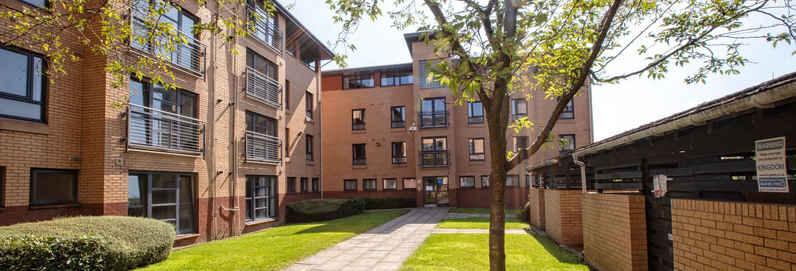By
Sam Taylor
Posted 4 days ago
Fri 11 Oct, 2024 12:10 PM
October marks Black History Month in the UK. A time to celebrate, reflect on, and learn about the rich and diverse history, achievements, and contributions of Black individuals in Britain and beyond. At the University of Glasgow, this month offers a valuable opportunity for students to engage in meaningful conversations, deepen their understanding, and stand in solidarity with Black communities. Whether you’re new to Black History Month or looking for ways to get involved, here’s a guide on what it’s all about and how you can do your part.
What is Black History Month?
Black History Month (BHM) in the UK has been observed since 1987, initiated to acknowledge the often overlooked history and cultural contributions of Black people to British society. It’s a time to honour the legacy of Black figures, from artists, writers, and activists to inventors, athletes, and community leaders, whose impact has shaped the world we live in today.
While it’s important to recognise that Black history is an integral part of British history year-round, October serves as a focused period to celebrate achievements, reflect on past struggles, and commit to ongoing progress toward equality and justice. It’s also a time to remember the global and local stories of resilience, creativity, and activism that have paved the way for social change.
How you can get involved
Here are some simple but impactful ways to get involved:
- Attend events on campus: The University of Glasgow often hosts events, lectures, and workshops during Black History Month, focusing on various aspects of Black history, culture, and contemporary issues. Keep an eye on the Students' Representative Council (SRC) website, the university’s social media channels, and event boards across campus for announcements. Attending these events is a great way to hear from guest speakers, learn from local activists, and engage in discussions on race and identity.
- Visit Glasgow’s Black History landmarks: Glasgow has a complex history linked to the transatlantic slave trade, but it is also home to places and people who have played pivotal roles in Black British history. Take some time to explore local landmarks like the gallery at the Riverside Museum, which offers insights into the city’s ties to slavery, or join walking tours that focus on Black history in Glasgow. Learning about the local history helps us better understand the past and the ongoing impacts on society.
- Read and watch educational resources: Educating yourself about Black history is a powerful way to honour the spirit of BHM. Look for books, documentaries, and podcasts by Black authors, historians, and creators. For starters, you might explore works like Brit(ish) by Afua Hirsch, which discusses race and identity in modern Britain, or Black and British: A Forgotten History by David Olusoga, which offers a comprehensive look at the contributions of Black people throughout British history. Streaming platforms like Netflix and BBC iPlayer also offer documentaries and films that highlight stories from the Black diaspora.
- Support Black-owned businesses and artists: Glasgow is home to many Black-owned shops, cafes, and creatives who contribute to the city’s vibrant culture. Supporting these businesses is a tangible way to show solidarity. Consider grabbing a meal from a Black-owned restaurant, shopping for products from local entrepreneurs, or attending events that feature Black artists and musicians. It’s a small step that can make a big impact.
- Join student societies and groups: The University of Glasgow has several student societies that focus on promoting diversity, inclusion, and anti-racism. Joining groups like the African Caribbean Society (ACS) or attending events hosted by these societies can be a great way to meet new people, learn, and celebrate culture. These societies often host BHM events, film screenings, and discussions where students can come together to share their experiences and ideas.
- Engage in conversations about race: One of the most important things you can do during Black History Month is to listen and engage in conversations about race, racism, and identity. Reach out to friends, classmates, and flatmates to discuss what you’ve learned and how you can contribute to creating a more inclusive environment at the university. If you’re unsure where to start, look for discussion guides or attend structured talks where these conversations are facilitated.
- Donate to organisations supporting racial justice: If you’re in a position to do so, consider donating to charities and organisations that work towards racial justice and support Black communities, both locally and globally. Whether it’s a student fundraiser or a larger organisation like the Stephen Lawrence Charitable Trust, your contributions can help fund vital work in education, advocacy, and community support.
Why BHM matters
Black History Month is a time for celebration, but it’s also a time for reflection. It’s about recognising the vital role that Black people have played in shaping our world, from the struggles against colonialism and civil rights to contributions in art, science, and beyond. By learning more about this history, we can better understand the challenges that continue today and work towards a future where equality, respect, and understanding are the norm.
Students have a unique opportunity to come together as a community, learn from each other’s experiences, and take steps towards creating a more inclusive and understanding environment.









